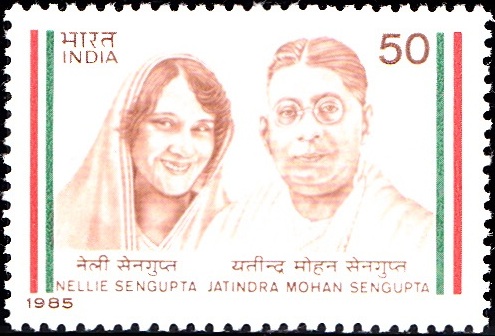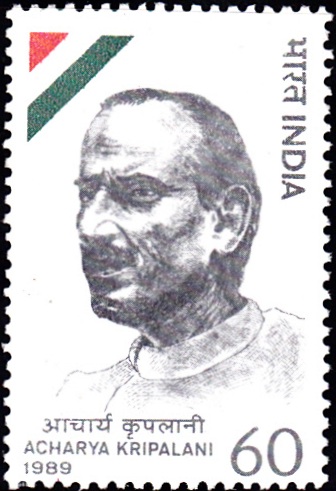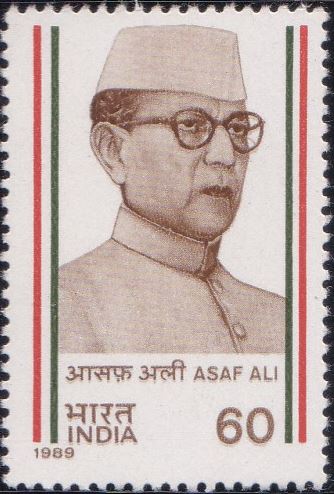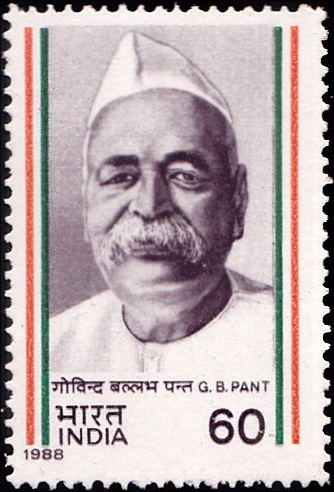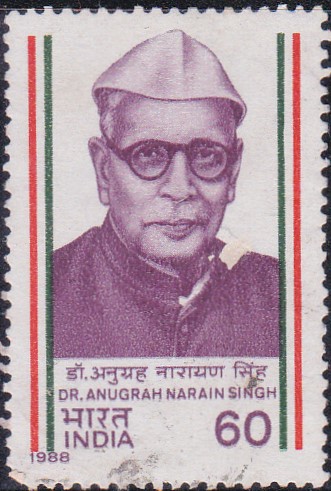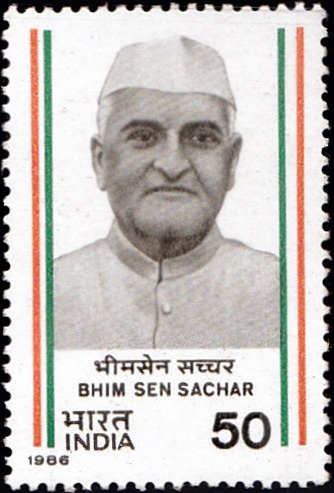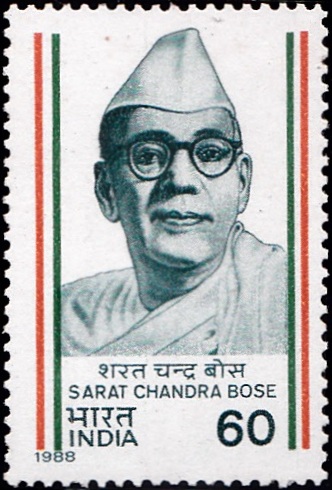
Sarat Chandra Bose
A commemorative postage stamp on the Birth Anniversary of Sarat Chandra Bose, elder brother of Subhas Chandra Bose : 
Issued by India
Issued on Sep 6, 1988
Description of Designs : The 60 p stamp is designed by India Security Press, Nashik Road, the first day cover by Shri Sankha Samantha and the cancellation by Smt. Alka Sharma.
Type : Stamp, Mint Condition
Colour : Multi colour
Denomination : 60 Paise
Overall size : 4.06 x 2.73 cms.
Printing size : 3.71 x 2.38 cms.
Perforation : 13 x 13
Paper : Indigenous unwatermarked P.G. Matt coated stamp paper
Number Printed : 10,00,000
Number per issue sheet : 40
Printing Process : Photogravure
Printed : India Security Press
Name : Sarat Chandra Bose
Born on Sep 6, 1889 at Howrah, West Bengal, India
Died on Feb 20, 1950 at Kolkata, India
About :
- Born on 6th September, 1889, Sarat Chandra Bose‘s life was multi-faceted.
- Law was his profession. He rose to the top and was called a “Prince of Barristers“.
- He joined the Indian National Congress in 1919 and was always in the vortex of the freedom struggle. He led the Congress Party and was Leader of the Opposition in the Bengal Legislative Assembly for many years. He was President of Bengal Provincial Congress Committee.
- He was Leader of Congress Party and Leader of the Opposition in the Central Legislative Assembly after elections in 1946 till transfer of power in 1947. He was a member of the Congress Working Committee and became a member of the Congress Central Parliamentary Board in 1946, sparing no efforts to bring in the Congress Party with a massive majority.
- He became member of the Interim Cabinet, but resigned to allow Muslim League members to join the Cabinet.
- An excellent journalist, he took charge of the paper “Forward” renamed “Liberty” started by Deshabandhu. Later, he brought out daily papers “The Nation” and the Bengali issue “Mahajati“.
- He suffered incarceration for two terms. He gave up his lucrative practice and joined the Civil Disobedience Movement. He was imprisoned from February 1932 to September 1935.
- He was a source of inspiration to the revolutionaries and extended financial and other support to them. He was the defence counsel for some of the accused in the famous Chittagong Armoury Raid Case.
- In 1941, he endeavoured to unite the Hindus and Muslims and with Fazlul Haque formed the Progressive Coalition Party which assumed power in Bengal. On the eve of his joining the Ministry, he was arrested in December 1941 and imprisoned till September, 1945.
- The mentor and guiding spirit behind his brother Netaji Subhas Chandra Bose, he participated in the freedom struggle side by side with him.
- He resigned from the Indian National Congress in 1946 in protest against the decision of the Congress to agree to the partition of the country and formed the Socialist Republican Party and fought hard and alone for an United India. An astute statesman, he could visualise the aftermath of Partition.
- He was the pioneer in the movement for unification and consolidation of the leftist forces in India and succeeded in launching the United Socialist Organisation, in which many leftist parties joined.
- He passed away on the 20th February, 1950, fighting till the last for realising his principles.
- His dauntless spirit knew no compromise. A statesman, philosopher, a sensitive thinker, a man of action, a child of the Indian Renaissance – that was Sarat Chandra Bose.
- Text Courtesy: Smt. Gita Biswas, Calcutta.


